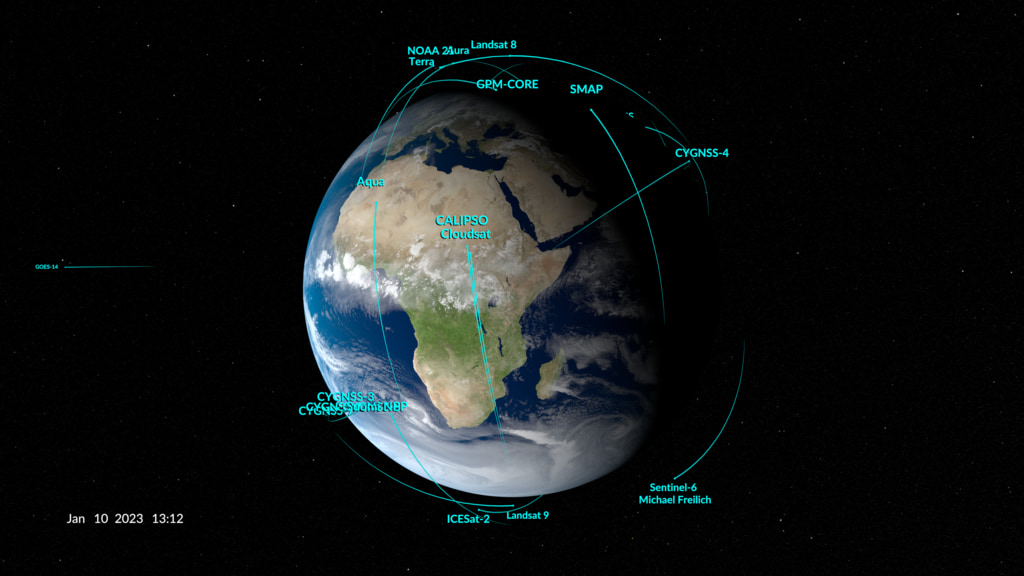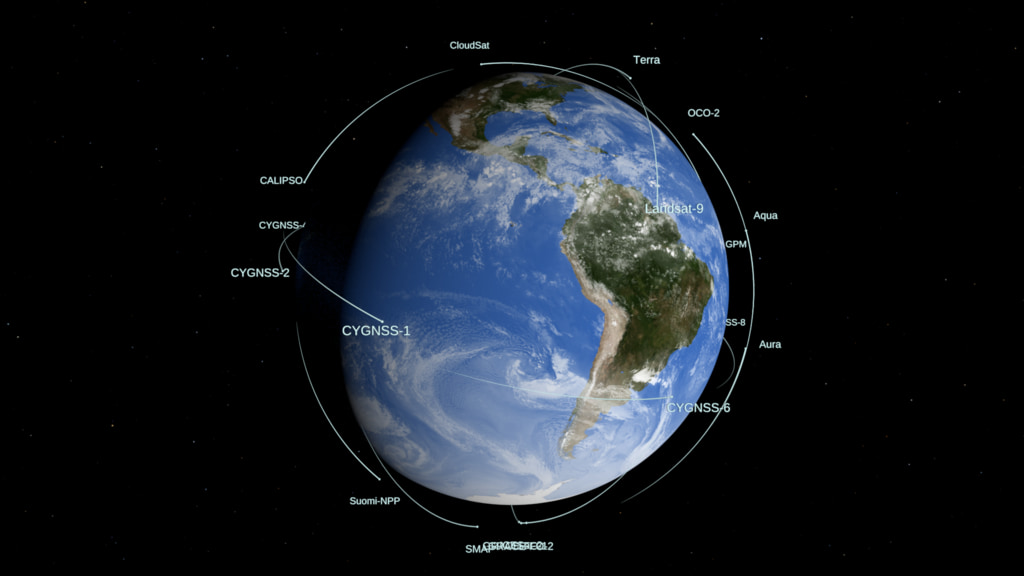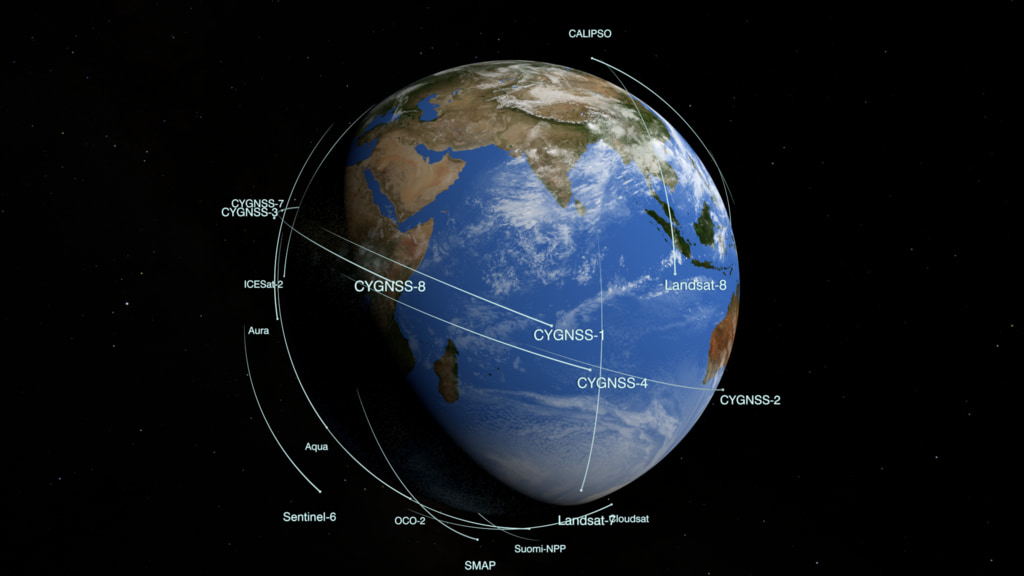A newer version of this visualization is available.
Earth Observing Fleet (October 2018)
NASA's Earth Science Fleet as of October 2018
This animation shows the orbits of NASA's fleet of Earth observing spacecraft that are considered operational as of October 2018. New elements in this version include the ICESat-2 and Cloudsat/CALIPSO in new orbits. The clouds used in this version are from a high resolution GEOS model run at 10 minute time steps interpolated down to the per-frame level.
Spacecraft included:
Aqua
Aura
CALIPSO: Cloud-Aerosol Lidar and Infrared Pathfinder Satellite Observation
CYGNSS-1: Cyclone Global Navigation Satellite System 1
CYGNSS-2: Cyclone Global Navigation Satellite System 2
CYGNSS-3: Cyclone Global Navigation Satellite System 3
CYGNSS-4: Cyclone Global Navigation Satellite System 4
CYNGSS-5: Cyclone Global Navigation Satellite System 5
CYGNSS-6: Cyclone Global Navigation Satellite System 6
CYGNSS-7: Cyclone Global Navigation Satellite System 7
CYGNSS-8: Cyclone Global Navigation Satellite System 8
Cloudsat
DSCOVR: Deep Space Climate Observatory
GPM: Global Precipitation Measurement
GRACE-FO-1: Gravity Recovery and Climate Experiment Follow On-1
GRACE-FO-2: Gravity Recovery and Climate Experiment Follow On-2
ICESat-2
ISS: International Space Station
Jason 2
Jason 3
Landsat 7
Landsat 8
OCO-2: Orbiting Carbon Observatory-2
SMAP: Soil Moisture Passive Active
SORCE: Solar Radiation and Climate Experiment
Suomi NPP: Suomi National Polar-orbiting Partnership
Terra
Credits
Please give credit for this item to:
NASA's Scientific Visualization Studio
-
Visualizers
- Greg Shirah (NASA/GSFC)
- Ernie Wright (USRA)
Release date
This page was originally published on Sunday, December 9, 2018.
This page was last updated on Monday, January 6, 2025 at 12:13 AM EST.
Datasets used
-
CelesTrak Spacecraft Orbit Ephemeris
ID: 454This dataset can be found at: http://celestrak.com
See all pages that use this dataset
Note: While we identify the data sets used on this page, we do not store any further details, nor the data sets themselves on our site.



![Music: Stepping Stone Bridge by Timothy Michael Hammond [PRS], Wayne Roberts [PRS]Watching Ladybirds by Benjamin James Parsons [PRS] This video can be freely shared and downloaded. While the video in its entirety can be shared without permission, some individual imagery provided by pond5.com and Artbeats is obtained through permission and may not be excised or remixed in other products. Specific details on stock footage may be found here. For more information on NASA’s media guidelines, visit https://www.nasa.gov/multimedia/guidelines/index.html. Complete transcript available.](/vis/a010000/a013200/a013281/Thumbnail_Arctic_Fires_Print.jpg)